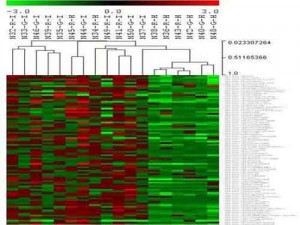Functional genomics investigations of host-pathogen interactions in bivalves
Further progress in understanding factors affecting the regulation of infectious diseases is limited by the lack of information regarding both, the virulence mechanisms of most potent parasites and bivalve immunity. In this project, we are developing and using functional genomics and proteomics approaches (RNASeq, oligoarrays, and targeted gene expression and regulation studies, LC/MS) to: (1) identify and characterize virulence factors in marine parasites (specifically the clam parasite QPX and the oyster parasite Perkinsus marinus) and identify host and environmental factors that regulate virulence, and (2) characterize transcriptional signatures of the immune response against these microbes. We are also looking into the molecular bases of the effects of environmental factors on disease development (QPX-clam). In the case of Perkinsus-oyster interactions, we are probing the molecular pathways that allow the parasite to regulate the activity of infected hemocytes (specifically motility and apoptosis regulation).

Unentangling environmental acclimation, stress response and immune response proper is often challenging but new bioinformatic tools can help
This project combines “traditional” (cellular and biochemical assays) and functional “omics” techniques to provide an integrative assessment of host-pathogen crosstalks in bivalves. We expect this approach will allow the discovery of biomarkers and molecular mechanisms characteristic of both resistance to, and dysfunctions caused by, investigated parasites.





